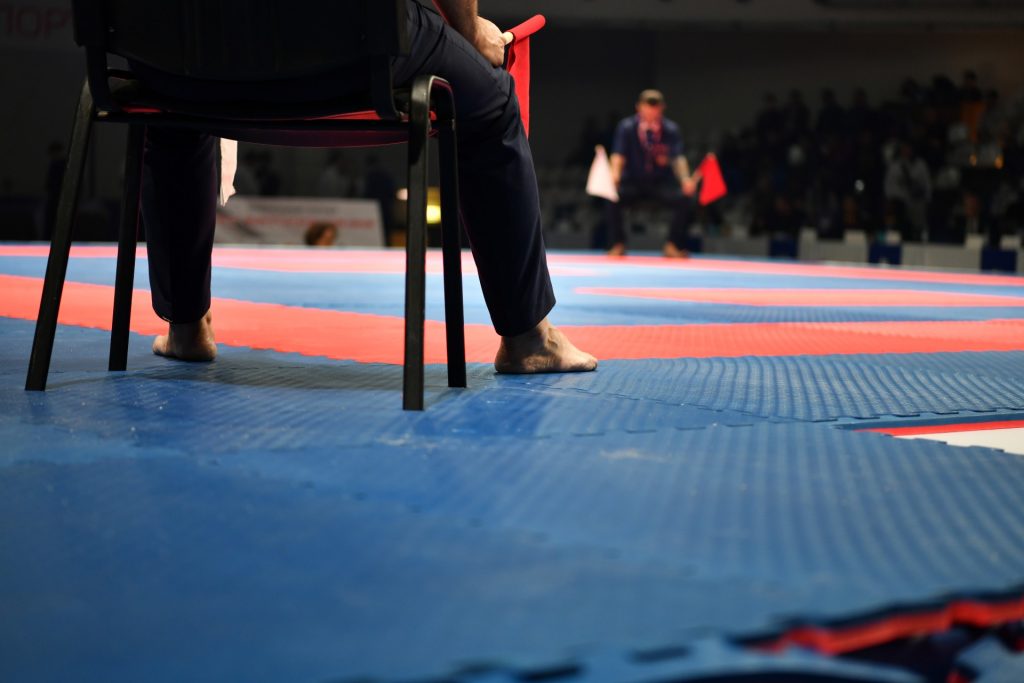In martial arts training, competitions are common events that many students enjoy and work towards. Organized competitions allow students to compete against others in studios with different training styles than a student’s home gym. Students enjoy seeing how their skills play against others in their age and rank group. Unlike training within the same studio, which also has incredible benefits, opponents in competitions help students gauge where they are compared to others in martial arts. It also forces students to assess another’s skills, analyze their approach, and come up with the best strategy to beat them at the moment. There is substantial growth through participating in competitive martial arts events.
Competition Focused Studios
Some studios are more competitive and train specifically for these events, whereas other studios are focused on developing the student through continued training and internal competitions but support and encourage students to attend and participate in these larger-scale events. In a competition, many more eyes are on the student in a match, including cheering and other commentary from onlookers. Some students are intimidated by large audiences, and others thrive. Competitions make students stronger, training them to overcome fears and use their mental training, breathing techniques, and focus to level emotional charges to sustain a full day of matches. Students learn endurance and how to be a graceful winner and loser in competitions.
Sparring v Competitions
In essence, sparring is a warm-up for competitions. A martial arts competition is a higher level of sparring, and there are many rules to follow, whereas sparring in a studio is more relaxed and guided by instructors. In sparring, there is no winning or losing per se. There are also no medals or awards in studio sparring. Sparring is part of quality martial arts training, allowing students who want to compete to prepare in hand-to-hand combat.
Competitions may bring out something in students that won’t come out in sparring. Sometimes, the big stage feel of large competitions can inspire students to want to work harder and achieve greater things within the sport. Of course, winning is what everyone wants, but martial artists usually enter a martial arts competition to learn and become better. Students have much to gain from competitions, including personal growth, honest skill assessment, perseverance, and humility.
Three Ways to Prep for a Tournament
First, let your instructor know you are planning to compete in a tournament. They have likely competed and can explain what to expect. They can also help you in training as you approach the meeting date. Students can do several things to prepare for a competition while increasing their odds of success.
Manage Weight Gain/Loss
Once a student decides to compete, staying within the ideal weight class is essential, so managing weight gain and loss leading up to the competition is crucial. Students who want to compete in a lighter-weight class may monitor their calorie intake or increase cardio to lean down. In a pinch, students can shed water weight within 24 hours of a weigh-in.
In preparation for a tournament, it is better to lean down over time, so lower carbohydrates and increased consumption of vegetables are best. On the day of the competition, get some carbs and stay hydrated. Competitions can go long, and athletes who forget to hydrate won’t be able to compete at their highest level. Sleep is another thing athletes must invest in leading up to a competition, which also aids in weight management.
Practice with Tournament Rules
Knowing the rules and being able to compete within them can be a significant advantage for martial arts students. Tournaments often use points for scoring, including the number of takedowns, sweeps, reversals, etc. Students can work with their instructors to better understand what techniques get the most points, which may be the difference between winning and losing a match.
Mental Preparation
The adrenaline rush and nerves will undoubtedly be a factor in competitions, especially for those walking it for the first time. Preparing mentally and setting realistic goals is smart when preparing for a competition. Although adrenaline can be beneficial in the short term, the crash can inhibit and drain energy. Students must train to manage these dumps, remain focused, and recognize the competition is not life or death. Setting realistic goals about the takeaways is also an excellent way to stay grounded and keep the ego out. In this way, students set goals that can be achieved whether they win or lose, which helps keep the experience positive.
When it comes to martial arts, there are many ways to use the training. Participating in tournaments and competitions is a great way to enhance training when students want to know how they are compared to peers outside the studio. Studios like SwiftKick focus on supporting and encouraging students to achieve their goals, no matter what.

